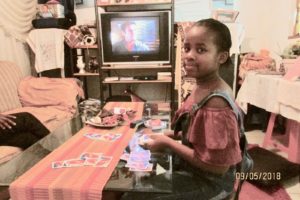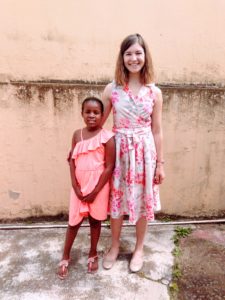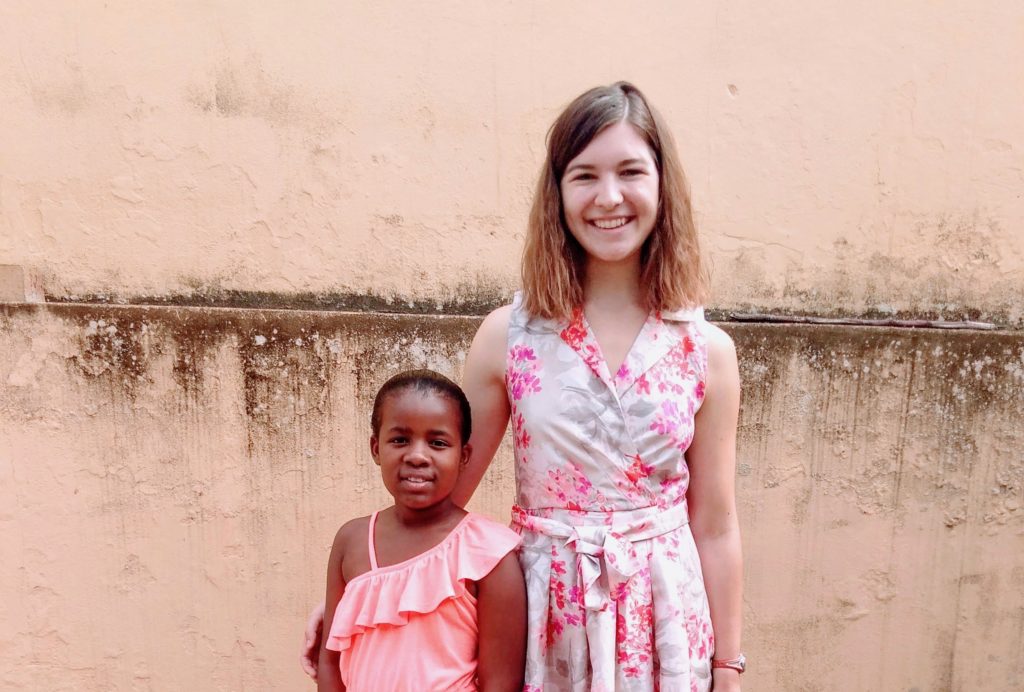
The round of Uno has been going on a good 10 minutes but neither Sthembeka nor her Gogo are closer to winning than when the game started. As they take turns drawing in pursuit of the next playable card, their hands grow fatter and fatter. “Sthembeka, no!” Gogo moans, half laughing. I peer over at Sthembeka’s hand. Pleasantly surprised at what I see, I point at her rainbow card and whisper, “You can play that. Let’s end this quickly and beat Gogo.” Sthembeka snickers. “No,” she whispers back, returning to her routine of cheerily drawing, concealing, and drawing again. Meanwhile, poor Gogo takes another card, hoping that it can wrap up the round. “Don’t you see?” Gogo explains. “Sthembeka knows what she’s doing. She just wants to keep playing.”

As I watch Sthembeka fixate on Uno night after night, I begin to understand that the nine-year-old girl doesn’t care about winning. She is determined to enjoy herself, even when others — like me — have long forgotten what being a kid means. If Gogo, whose eyes often cannot recognise the numbers written on the cards, plays incorrectly, Sthembeka immediately catches it like a cop in action. “Gogo, you can’t do that!” she bellows, handing Gogo’s card back to her. On the other hand, Sthembeka’s shout turns victorious if she decides to — and succeeds — in running out of cards before Gogo and I. “Checkmate!” she celebrates, soon after asking which of us would like her help as we vie for last place. I used to tell Sthembeka that “checkmate is only for chess” and “Uno is just a game of luck,” but I later realised how politically correct I sounded. Maybe Sthembeka’s stubbornness has more to offer than my ingrained political correctness.

“Let’s do something special for our birthdays.” When our favourite soapie breaks for a commercial, Sthembeka keenly brings this up. Since discovering our birthdays are one day apart, the idea of a special activity has been on her mind. “What do you want to do? Do you like cake?” I reply. “Hmmm…” Sthembeka seems puzzled, but only for a few seconds. “Let’s have a treasure hunt,” she beams. “You buy me a present, I’ll buy you a present, and then we’ll hide them in the house.” She adds, “And we have to write 10 clues to help us find them.” Why did I not think of that? Perhaps I had spent too many years stooped in my studies to recall how adventurous and exhilarating treasure hunts are!
“Good morning, Francis.” Every morning as I finish my last bites of porridge, Sthembeka emerges from her room in her green uniform, greeting me with a name I have never identified with. My name is Francine and she knows it. My first instinct is to correct her, but as I watch her pour herself some cornflakes and add a hearty portion of sugar, I smile. “Let her call me whatever she wants,” I think to myself. “It’s okay to be a kid.”




